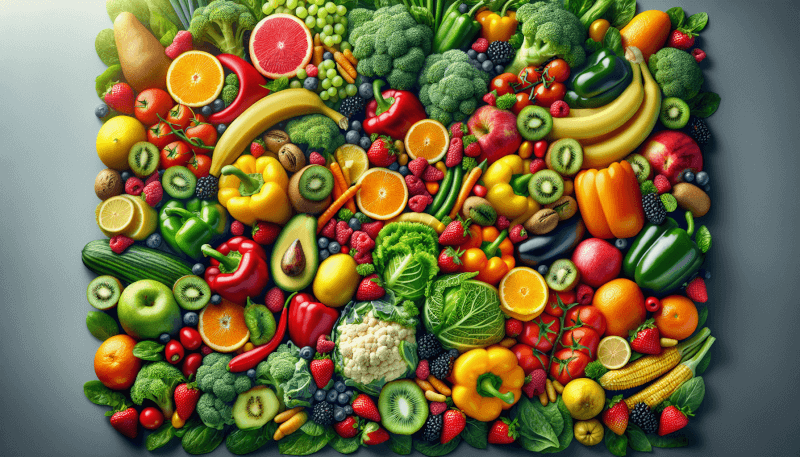Are you a proud bird owner looking to ensure the health and well-being of your feathered friend? Then you’ve come to the right place! In this article, we will explore the most common nutritional deficiencies that pet birds often face. By understanding these deficiencies, you will be equipped with the knowledge to provide your beloved bird with a balanced and nutritious diet, promoting their vitality and happiness. So let’s dive into the world of pet bird nutrition and make sure your avian companion is receiving all the essential nutrients they need to thrive!
Vitamin A Deficiency
Symptoms of Vitamin A Deficiency
When your pet bird lacks sufficient vitamin A in its diet, it can experience a range of symptoms. These may include decreased appetite, weight loss, poor feather quality, and even respiratory issues such as sneezing or noisy breathing. Additionally, birds with vitamin A deficiency may develop eye problems, such as cloudiness or swelling around the eyes, and they may also be prone to infections and have a weakened immune system.
Causes of Vitamin A Deficiency
Vitamin A deficiency in pet birds can stem from a variety of causes. One major factor is an inadequate diet, especially if it lacks foods high in vitamin A. Birds that primarily consume seeds or a seed-based diet are particularly prone to this deficiency since seeds are often low in vitamin A. Other contributing factors can include digestive issues that prevent the proper absorption of vitamin A, liver disease, or even a lack of access to sunlight, which hampers the bird’s ability to convert beta-carotene into vitamin A.
Prevention and Treatment of Vitamin A Deficiency
Preventing and treating vitamin A deficiency in pet birds revolves around providing a well-balanced diet that includes foods rich in vitamin A. Foods such as dark leafy greens (e.g., kale, spinach), orange fruits and vegetables (e.g., carrots, squash, sweet potatoes), and certain types of fortified bird pellets are good sources of vitamin A. You can also consider offering your bird vitamin A supplements, but it is always best to consult with a avian veterinarian before doing so. Regular check-ups with an avian veterinarian are crucial to monitor and address any deficiencies.

Calcium Deficiency
Symptoms of Calcium Deficiency
Calcium deficiency in pet birds can lead to a range of symptoms, which may vary in severity. Some common signs of calcium deficiency include weakness, tremors, seizures, and changes in behavior such as aggression or self-mutilation. Birds with calcium deficiency may also experience thinning or deformed bones, difficulty laying eggs, and impaired muscle function. In severe cases, the deficiency can lead to metabolic bone disease, resulting in fractures or deformities.
Causes of Calcium Deficiency
There are several potential causes of calcium deficiency in pet birds. One primary factor is an inadequate diet that lacks sufficient sources of calcium. Seeds, which are often the main component of a bird’s diet, are typically low in calcium. Furthermore, some birds may have an increased need for calcium due to factors such as rapid growth, egg-laying, or molting. Issues with calcium absorption, such as a lack of vitamin D or certain medical conditions, can also contribute to calcium deficiency.
Prevention and Treatment of Calcium Deficiency
Preventing and treating calcium deficiency involves ensuring your pet bird receives a proper diet that includes foods high in calcium. Offer a variety of calcium-rich foods such as leafy greens, broccoli, and dairy products (e.g., low-fat cheese, yogurt). Additionally, providing a cuttlebone or mineral block in the bird’s cage allows them to self-regulate their calcium intake. In severe cases, a veterinarian may recommend calcium supplements or injections to address the deficiency and enhance the bird’s health.

Vitamin D Deficiency
Symptoms of Vitamin D Deficiency
When pet birds lack sufficient vitamin D, they may display a range of symptoms. Some common signs of vitamin D deficiency include weakness, bone deformities, tremors, and impaired growth. Birds may also experience muscle weakness, decreased appetite, and develop a condition called hypocalcemia, where blood calcium levels drop. Additionally, vitamin D deficiency can compromise the bird’s immune system, making them more susceptible to infections and diseases.
Causes of Vitamin D Deficiency
One of the primary causes of vitamin D deficiency in pet birds is a lack of exposure to natural sunlight or UVB lighting. Birds need sunlight or UVB lighting to convert a precursor molecule in their skin into vitamin D. Dietary deficiency can also contribute to the lack of this essential vitamin, especially if the bird’s diet consists primarily of seeds or lacks foods rich in vitamin D. Additionally, certain medical conditions or liver disease can hinder the bird’s ability to absorb or metabolize vitamin D effectively.
Prevention and Treatment of Vitamin D Deficiency
Preventing and treating vitamin D deficiency in pet birds involves ensuring they have access to natural sunlight or UVB lighting for a specified period each day. However, it is essential to understand the balance between providing enough light exposure and avoiding overheating or sunburn. If natural sunlight is not readily available, specialized avian UVB lamps can be used as an alternative. Moreover, adjusting the bird’s diet to include vitamin D-rich foods, such as fortified bird pellets, egg yolks, and fatty fish, can help address the deficiency. Consulting with an avian veterinarian is crucial to determine the best approach for your bird’s specific needs.
(Continued in the next part…)



